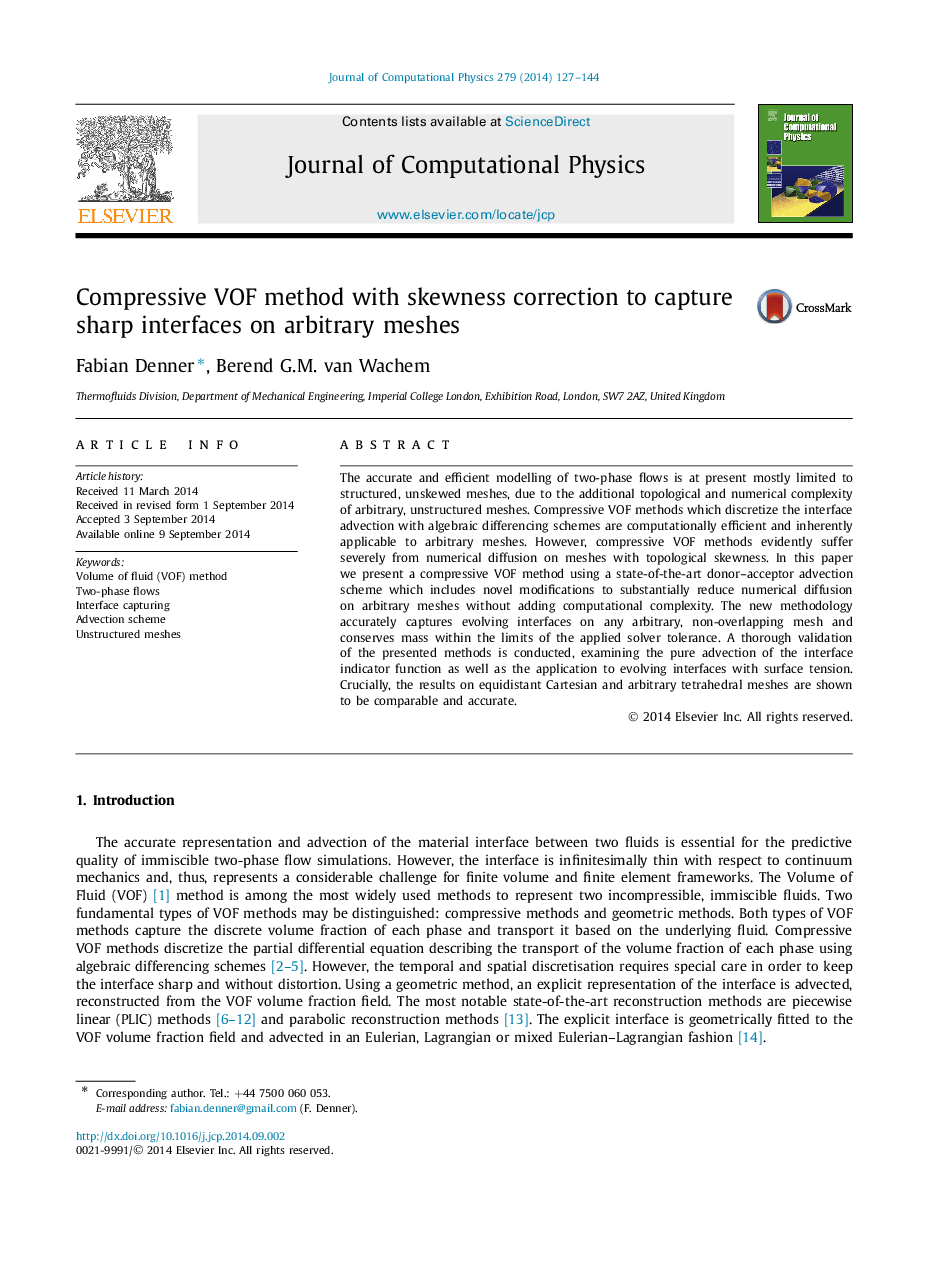| Article ID | Journal | Published Year | Pages | File Type |
|---|---|---|---|---|
| 519072 | Journal of Computational Physics | 2014 | 18 Pages |
The accurate and efficient modelling of two-phase flows is at present mostly limited to structured, unskewed meshes, due to the additional topological and numerical complexity of arbitrary, unstructured meshes. Compressive VOF methods which discretize the interface advection with algebraic differencing schemes are computationally efficient and inherently applicable to arbitrary meshes. However, compressive VOF methods evidently suffer severely from numerical diffusion on meshes with topological skewness. In this paper we present a compressive VOF method using a state-of-the-art donor–acceptor advection scheme which includes novel modifications to substantially reduce numerical diffusion on arbitrary meshes without adding computational complexity. The new methodology accurately captures evolving interfaces on any arbitrary, non-overlapping mesh and conserves mass within the limits of the applied solver tolerance. A thorough validation of the presented methods is conducted, examining the pure advection of the interface indicator function as well as the application to evolving interfaces with surface tension. Crucially, the results on equidistant Cartesian and arbitrary tetrahedral meshes are shown to be comparable and accurate.
